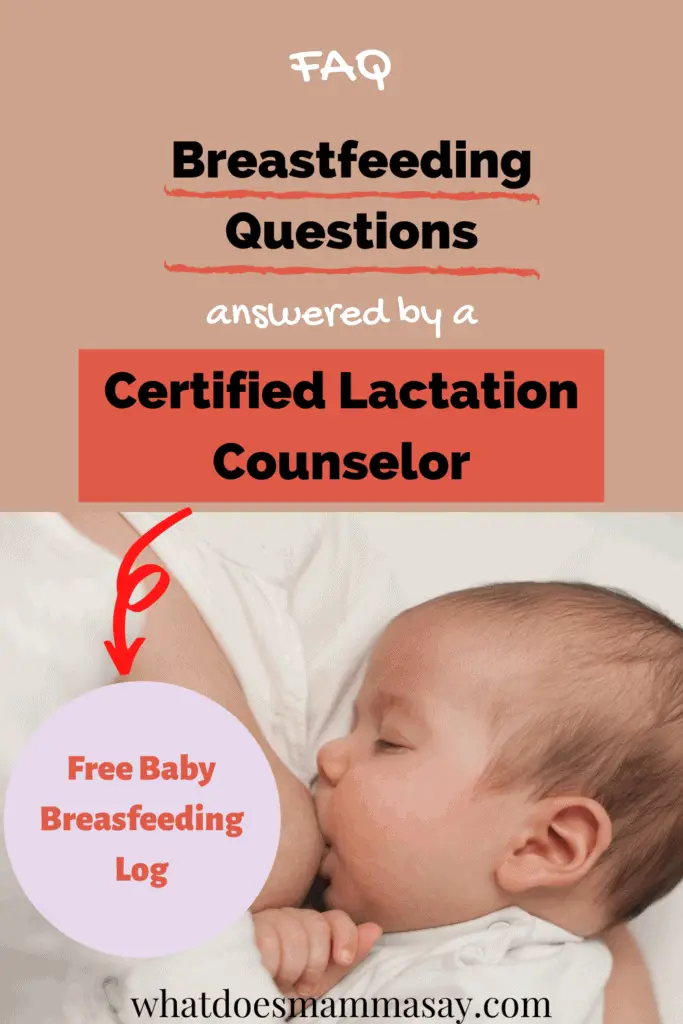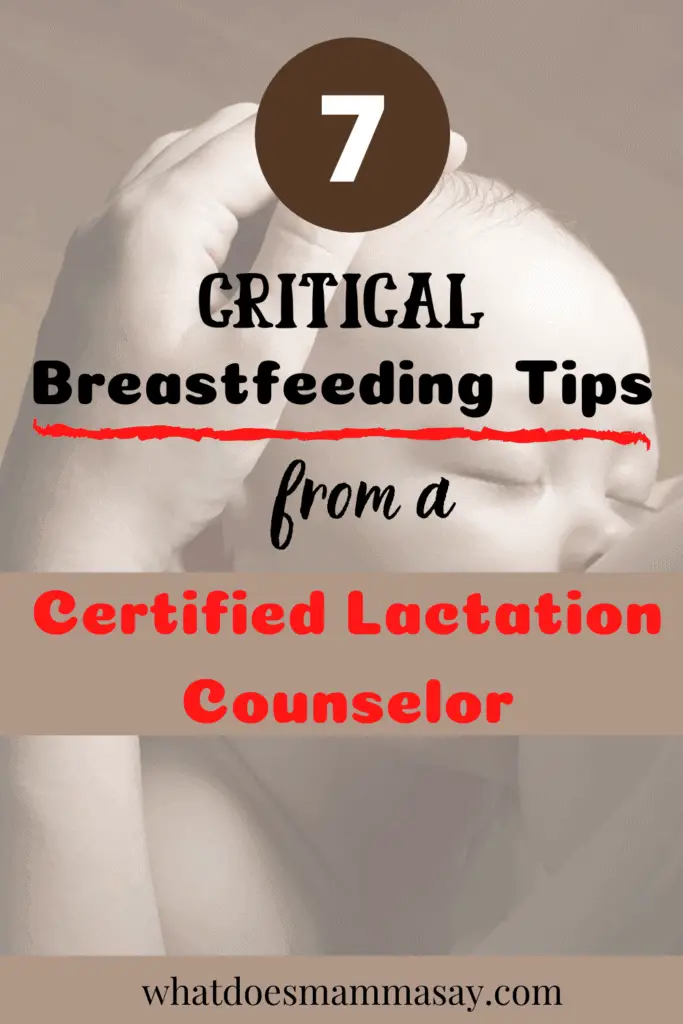This post may contain affiliate links and I may earn a small commission when you click on the links at no additional cost to you. As an Amazon Affiliate, I earn from qualifying purchases. You can read my full disclosure here.
For 28 years, the first week of August has a special significance for the world. In 1992, the World Alliance for Breastfeeding Action (WABA) came up with a fantastic initiative that would raise awareness, protect and promote breastfeeding. Important organizations like WHO and UNICEF, have since joined the project and today it is celebrated in 120 countries.
World Breastfeeding Week has the vital mission of promoting the importance of Breastfeeding both for mothers and the harmonious development of the baby. Besides answering important breastfeeding questions to first-time moms, it also raises awareness on other topics related to breastfeeding like the importance of bonding with the child during the initial years or the positive impact that exclusive Breastfeeding has on the environment.
Keep an accurate log of your baby’s feeding schedule with this elegant BABY FEEDING LOG. File them together and start a Baby Feeding Log Diary. Get yours now for free!
We wanted to take this opportunity and bring our own contribution to this cause. I vividly remember my own breastfeeding journey and the multitude of breastfeeding questions that I had.
To this end, we have compiled a list of the most important breastfeeding questions that we are certain will offer help and support to moms-to-be. And because we value our readers, we want to bring you the most accurate information out there.
So, What Does Mamma Say has teamed up with Rachel Da Silva from Mommy Did You Know, a registered nurse and Certified Lactation Consultant.

Get to know Rachel Da Silva
Rachel Da Silva, RN, BSN, CLC is a mother of 2 and a Registered Nurse with over 8 years of experience in Maternity. She also is a Certified Lactation Counselor with a Private Practice in Boynton Beach, Fl. She started Mommy Did You Know LLC to provide vital resources for families. The mission of MDYK is “Building strong families through education, support, and encouragement”.
Frequently Asked Breastfeeding Questions
1. Does breastfeeding hurt?
Breastfeeding does not always look like how you see in the movies. On television you see a perfect smiling mother bring her perfect baby to the breast and start nursing without any issues. You might see the baby open nice and wide and she is probably washing her dishes at the same time. Real-life is not like that.
Breastfeeding takes practice, and it might not be all that glamorous. For starters, it might be a little uncomfortable. You might feel tugging and pulling, but you should not feel pinching or stinging. If you do feel uncomfortable after the initial latch, try to re-check the latch and positioning of the baby.
The baby should have a wide mouth and be over the areola (the dark part) of the breast. If your baby is just over the nipple you will feel that pinching and stinging. You might even have bleeding and blisters. Those are signs that the baby is not latched on correctly. If that is the case, I highly recommend a personal consultation with me so we can make your breastfeeding experience more comfortable.
2. How can I breastfeed without pain?
One of the most frequent breastfeeding questions and fears of new moms is the fact that breastfeeding hurts. The best way to breastfeed without pain is to make sure the latch and position of your baby are correct. Positioning is ESPECIALLY important to a breastfeeding session. It allows the baby to be comfortable to latch and feed, and it allows the mother to remain comfortable for the duration of the feed. In improper position can cause the baby to get anxious and have a hard time latching on.
The first step you should always take while starting a session is to observe your child’s breastfeeding cues. A session should start in the early stages of hunger, and not in the later stages. Early signs of hunger include: REM eye movement, hand to mouth movements, sucking and lip-smacking, rooting, and opening and closing the mouth. Late signs include moving the head back and forth frantically and crying.
It is so important to start a session during the early feeding cues. If you wait until the baby is at a late stage of hunger, you will first have to calm your baby down before starting your session. After you observe that your baby is ready for a feeding, CHECK THE DIAPER. You will find that it is exceedingly difficult to feed your child with a dirty or wet diaper. They will end up gnawing at your breast more than nursing at it.
After your baby is ready for the feeding, and the diaper is clean, put your baby SKIN TO SKIN. The position is particularly important if you want to make sure your child latches on correctly. There are so many useful nursing positions, and everyone has different preferences. In addition, babies have preferences too! My first baby loved “the football”, also called the “clutch hold”. My second loved the cross-cradle. Either way, whatever position you are using needs to follow these three keys:
- Your baby needs to be tummy to tummy
- The head, shoulders, and hips need to be in alignment
- Your baby should feel safe, secure, and close to the breast
Related: Baby Things to Buy Before Birth
Did Bonding with Baby Happen for You Immediately?
3. What are the main advantages of breastfeeding?
Breast milk truly is “liquid gold”. Even just a little bit of breast milk goes a long way. Your breast milk is easily digested and acts as a powerful antibiotic for your baby. Also, your milk is specially tailored to your baby.
When your baby is suckling, your body starts to change to provide for your child. I even noticed that when my baby was sick, my milk would change as well. Studies even show that mothers of premature babies produce milk with different fat compositions than term babies. Your milk is EXACTLY what your baby needs.
According to the American Academy of Pediatrics, the benefits of breastfeeding for your baby include protection against:
- Bacteremia
- Diarrhoea
- Respiratory tract infection
- Necrotizing enterocolitis
- Otitis media
- Urinary tract infection
- Late-onset sepsis in preterm infants
- Type 1 and type 2 diabetes
- Lymphoma, leukaemia, and Hodgkins disease
- Childhood overweight and obesity
- Sudden Infant Death Syndrome
4. What are the main benefits of breastfeeding?
Believe it or not, there are also amazing benefits for mom when she decides to breastfeed! Some of these include:
- Helping mom lose weight after the baby
- Lowers risk of osteoporosis
- Reduces risk of breast, uterine, endometrial, and ovarian cancer
- Helps regulate blood sugar for diabetics
- Helps regulate blood pressure
- Less risk of postpartum depression
- Helps mom bond with her baby
- Helps keep the uterus firm to prevent hemorrhage after delivery
5. How can I avoid engorgement?
Honestly, engorgement is kind of a forgotten topic and it should be one of the breastfeeding questions that moms-to-be ask. People talk about low milk supply and problems latching, but people rarely talk about an over-supply. I think that is because most mothers feel embarrassed to talk about how they have too much milk when other mothers cannot even breastfeed because they do not have enough. It is a sister mentality that I completely understand. But in the spirit of honesty, over-supply sucks!
I was hospitalized twice because of my over-supply. Once was because of mastitis, and another because of de-hydration. I am like most moms, I feed and take care of the baby, then I take care of myself. I would breastfeed, pump, feed the expressed milk, and then rinse and repeat. But I forgot one crucial detail: I am losing a lot of water with all that pumping! I ended up with severe dehydration postpartum. I also would get large lumps that were so painful it would make me cry.
Here are my tips to help prevent you from going down the same road:
- Please drink water: you cannot take care of your baby if you cannot take care of yourself
- Pump just enough to relieve the pressure: pumping too much will tell your body to create more milk
- If your baby has a hard time latching on because your breasts are too hard, use a hand pump for a few minutes to make them softer
- Massage your breasts and try different breastfeeding positions to make sure you empty all parts of the breasts while nursing.
- Call your doctor immediately if you have a fever or hard hot lumps that do not go away after a few days. These can be signs of mastitis.
- You can relieve the pressure of engorgement by using anti-inflammatories such as Motrin. Just make sure you are not allergic first.
6. How do I know whether I have enough milk for my baby?
One great way that you can tell that your baby has eaten well is just by being observant and responsive. At the beginning of a feeding, your baby will have clenched fists, and an overall constricted look. As the feeding progresses, your baby should feel satisfied and start relaxing the hands. You will see the posture of your baby completely change.
This is a great way to tell that your baby is content after a feeding. You can also tell by breast changes that you feel. As your baby latches, you will feel tugging (not pinching) and after the feeding, your breasts should feel emptier and softer. If you are still full after the feeding and think you might be engorged, check out my article about engorgement.
There are also many signs that will tell you that your baby is feeding well. One great way that you can check is with the diaper changes and weight.
Monitor diapers: One great sign of hydration is diaper changes. Your baby should have at least one dirty diaper and one wet diaper the first day. You should have two of each the second day, and the third day you should have three pees and at least 2 dirty diapers. Some babies have much more, and that is great! But you want to at least have the minimum.
Weight changes: Your baby is expected to lose up to 10% of their weight after delivery. This is because all that water weight is leaving their system. Once a baby reaches about 7% weight loss, we like to assess the feeding pattern to make sure the baby has enough intake.
If you are worried that you might not be producing enough milk for your baby, it would be a good idea to introduce these 11 Foods that Increase Milk Supply (fast) in your diet.

7. What is the best way to store breast milk?
For breast milk, I like to use the 4-4-4 rule. Basically, you can store freshly pumped breast milk at room temperature for 4 hours, in the fridge for 4 days, and the freezer for 4 months. This is an easy way to remember it, that you can share with your family, friends, and caregivers. Keep in mind that once thawed, your breastmilk will need to be used within one day. NEVER REFREEZE HUMAN MILK! This is a huge contamination risk.
Here are a few tips to keep your breast milk fresh
- Wash your hands before preparing, pumping, or feeding any milk
- Keep milk stored as far back in the fridge as you can- This allows the milk to stay as cool as possible
- Keep cans of powdered formula in a cabinet that you do not open as much – This helps to prevent the spread of contaminants.
- Remind others to wash their hands when preparing your child’s milk or feeding your baby
- Double-check expiration dates on formula, and educate caregivers to do the same
- Might sound funny but take an ounce of your pumped milk and let it sit out to spoil. Smell it and make a mental note of what it smells like. Before offering any feedings to your child, make sure to do the “smell test”
- If your child is refusing a feeding, do not force it. He might be rejecting the spoiled milk taste
- Do not freak out if you find that your child had spoiled milk, it happens! Wash out their mouth, and keep an eye out for fever, vomiting, and diarrhea. If symptoms continue, call your pediatrician.
Additional Resources
To assist parents during pregnancy and postpartum, Mommy Did You Know offers a variety of free and low-cost resources as well as personal consultations where all your breastfeeding questions will be answered.
- FREE PRENATAL CLASS
- FREE LIVE ONLINE PRENATAL CLASS
- FREEBIE LIBRARY
- LOW-COST PERSONAL CONSULTATION (PHONE OR VIDEO)
- PREMIUM PRENATAL CLASSES
In addition to the valuable breastfeeding questions kindly answered by Rachel, we would like to offer you, tired mama, a way to keep track of your baby’s feeding schedule in a clear, organized manner.
I remember that in the first few weeks after birth, my brain was scrambled. I could barely tell you my name, let alone which breast did the baby eat from, how long did he feed for, how many diapers I’ve changed.
The only solution was WRITING IT ALL DOWN!
So, dear exhausted but happy mommy here is a Free Printable Breastfeeding Log to help you keep an accurate and organized diary of your baby’s feeding habits.
We hope that these breastfeeding questions and answers have given you all the information that you need and will help and guide you through your beautiful breastfeeding journey.
Help us spread awareness about breastfeeding by sharing this article with your friends. We appreciate it!

Mom of two wonderful children, dedicated teacher and book lover.


I wish I knew all of this prior to having my baby. I was SOOOOO CLUELESS about breast feeding and was forced into doing it!
I wish that doctors and hospitals gave this kind of info to new moms. I was clueless when I had my first baby.
This is a wonderful Q&A for new moms. I had no idea what I was doing when I had my first, I just knew I wanted to breastfeed and I was going to make it happen. This is such a great share.
Great questions and answers! I did face a problem of engorgement a lot. I wish I had read this earlier. It’s great for new moms.
These are the type of resources I needed when I was breastfeeding my baby. I literally wrote a blog post about my experience and feel that if I had the information in this post, it would have been different.
This is an amazing resource! According to some of my friends with kids, breastfeeding can be a complicated journey. Some of them were able to breastfeed and some were not. Perhaps if they had such a vast resource like this they would have been more successful!I I think breastfeeding is beautiful and natural.
Wow, such an informative post. You have covered all important part of breastfeeding. Thanks for sharing.
This is a wonderful list of points that arent always discussed. So important for a newly nursing Mama!
This is a great resource for nursing mamas!
This is very informative! Thank you so much
Great information indeed…every mom should be aware of these no doubt in this..glad you shared such valuable information with us..really found it very helpful…
Excellent advice for breast feeding moms and those struggling through the process. I personally did not have a great experience with either of my daughters but fully support those that do.
LOVE LOVE LOVE this sooooo much. I breastfeed my singleton for 18 months and twins for 3 yrs. I really had to research and read posts like this in order for me to be successful in breastfeeding as I did. So thank you for posting such an awesome post!!! Beth, @wisemommies
This is such a great post, jam-packed full of helpful information!
This is a great resource for new moms.
Very useful and interesting, answers that finally come to light, to questions that all new mothers always ask themselves!
Great resources for new moms. I wish I had access to them when I first began my breastfeeding journey.
I am not a mother yet but down the line after some years it is going to be helpful for me too. I am bookmarking it!
This is a great resource for new moms. My youngest would not take a bottle, no matter how hard I tried. My suggestion is that if you plan to pump or supplement, introduce a bottle early on.
Lots of great information for all the new mamas out there!
Great info, all moms need this kind of complete and wellexplained blog. Thanks for sharing this!
This is a fantastic list! I wouldn’t have succeeded in my breastfeeding journey without my amazing lactation specialist!
Sharing this with a friend who is a new mom and currently struggling!